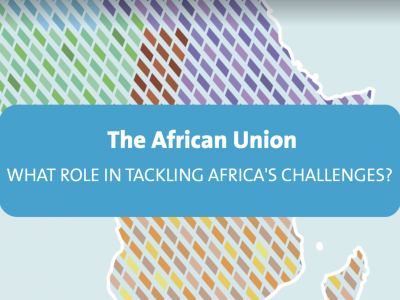As previously reported, the ECOWAS-EU EPA was initialed on 30th June 2014 and formally endorsed by the West African Heads of States on 10th July 2014 (1) and the SADC and EU negotiators sealed a deal on 15th July 2014 by “initialing” a regional EPA, covering Botswana, Lesotho, Mozambique, Namibia, South Africa and Swaziland (2). In addition, on 25th July 2014, Cameroon completed the ratification of its interim EPA (3) which was concluded at the end of 2007 and signed on 15th January 2009, following the approval by its National Assembly on 9th July and Senate on 10th July 2014. On 17th July 2014, the government of Fiji notified the European Union (EU) of its decision to start applying the Pacific interim EPA they had concluded jointly with Papua New Guinea at the end of 2007 and signed on 11th December 2011 (4). Negotiations are still ongoing with EAC, now at Ministerial level.
Legal framework
The EC Market Access Regulation, MAR 1528/2007 was introduced at the end of 2007 to provide duty-free quota-free (DFQF) access to the EU market for products from ACP countries that had just concluded an (interim) economic partnership agreement with the EU. It was meant to prevent trade disruption before the (provisional) application of the EPA regime. MAR 1528/2007 requires however that EPA countries take, “within a reasonable period of time”, the necessary steps to ratify and implement their EPA agreement. In May 2013, a new EU Regulation 527/2013 was adopted to remove from the scope of MAR 1528/2007 (i.e. to delete from Annex I of the MAR) those countries that had not taken the necessary steps towards ratifying or implementing their EPA by 1st October 2014. This has been commonly referred to as the 1st October 2014 ‘deadline’ and concerned Botswana, Cameroon, Cote d’Ivoire, Fiji, Ghana, Kenya, Namibia and Swaziland.
Following the ratification of the interim Central Africa EPA by Cameroon and the necessary steps taken by Fiji towards ratification of the interim Pacific EPA, which it will apply, the European Commission adopted two delegated acts, in accordance with Articles 2a and 2b of MAR 1528/2007, to reinstate these countries in the MAR, by amending its Annex I (5).
Delegated acts are decisions adopted by the European Commission, in accordance with Article 290 of the Treaty on the Functioning of the EU, on the basis of the power delegated to the Commission by the European Parliament and the Council, after appropriate and transparent consultations, in line with paragraph 4 of the Common Understanding on delegated acts. The decision comes into force unless the Council or the European Parliament rejects it within two months.
In the context of the EPAs, the European Commission was eager to be able to adopt delegated acts before August, so that taking into account this two-month period, the delegated regulation could come into force before 1st October 2014, so as to avoid any trade disruption for the countries concerned.
Countries excluded from MAR 1528/2007 following the amendment by the EU Regulation 527/2013 could also be reinstated in Annex I by concluding negotiations on a new EPA, according to Article 2(2) of the MAR. So, following the conclusion of the SADC-EU EPA, this is the case for Botswana, Namibia and Swaziland, and for the ECOWAS-EU EPA, Cote d’Ivoire and Ghana, the European Commission acting again by delegated act (6).
Hence, by concluding a regional EPA, agreed in July, these countries can de facto preserve their DFQF market access to the EU after 1st October 2014. The remaining 12 least developed countries in West Africa and Lesotho in SADC will continue to export to the EU under the DFQF provided under the Everything-But-Arms regime of the EU generalized system of preferences (GSP). Nigeria will continue to export under the EU standard GSP, Cape Verde under the GSP-plus, and South Africa the Trade, Development and Cooperation Agreement (TDCA). The EPA regimes will apply as soon as the agreements are signed, provisionally applied and/or ratified by the parties.
The European Commission also provided for the possibility that some countries having concluded an interim EPA in 2007 would not have either taken steps towards ratification of their interim EPA or concluded a new regional EPA before the 1st October 2014 deadline. Following the removal in May 2013 of these countries from the MAR 1528/2007 as amended by the EU Regulation 527/2013, the European Commission designed a delegated act to reinstate these countries under the EU GSP regime from 1st October 2014 (7).
EAC uncertainty and Kenya trade disruption
In practice, the only country really affected is Kenya, which will cease to benefit from the DFQF access under MAR 1528/2007 as of 1st October 2014. As GREAT Insights goes to press, the EAC negotiators were confident an agreement would be found with the EU to allow for the successful conclusion of their EPA negotiations but no deal has yet been reached.
As it would take about two months for the European Commission to have a delegated act decision approved to reinstate Kenya under MAR 1528/2007 following the successful conclusion of the EAC-EU EPA negotiations, Kenya will fall under the standard EU GSP from 1st October 2014, following the adoption of the European Commission delegated act on GSP to include all interim EPA countries concerned (listed above) in Annex II of the EU GSP Regulation 978/2012, as last amended by EU Regulation 1421/2013.
Under the EU GSP, Kenyan exports, in particular horticulture and some vegetable products, now given DFQF access, will face new tariff barriers, mostly between 8% and 12%. Kenya currently exports some US$530 million worth of cut flowers and over US$300 million worth of vegetables annually.
Dr. San Bilal (Editor), Head of the Economic Transformation Programme, ECDPM.
Footnotes
1. See http://news.ecowas.int/
2. See http://www.dti.gov.za/editmedia.jsp?id=3079 and http://trade.ec.europa.eu/doclib/press/index.cfm?id=1135
4. See http://trade.ec.europa.eu/doclib/press/index.cfm?id=1130&title=The-EU-and-Fiji-implement-the-Pacific-interim-Economic-Partnership-Agreement and www.fbc.com.fj/fiji/21393/fiji-agrees-to-interim-epa-with-eu
All acts are available at http://http://register.consilium.europa.eu/content/int?lang=EN&typ=SMPL
This article was published in GREAT Insights Volume 3, Issue 8 (September 2014).



